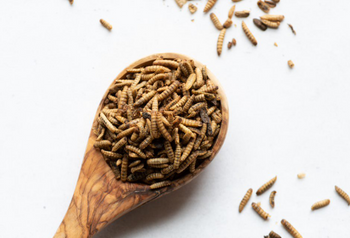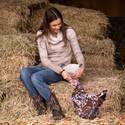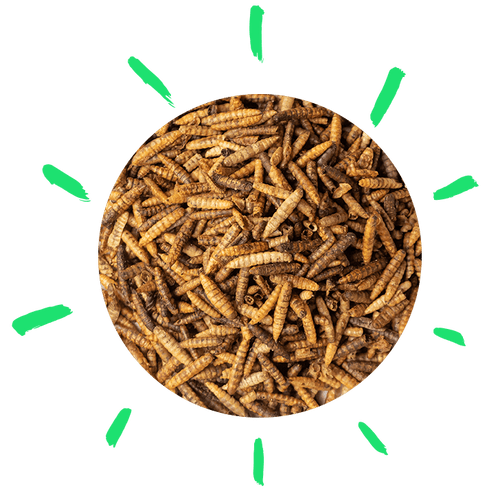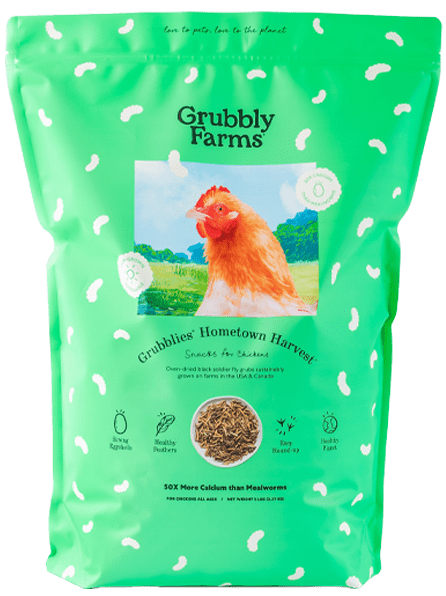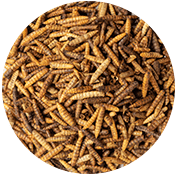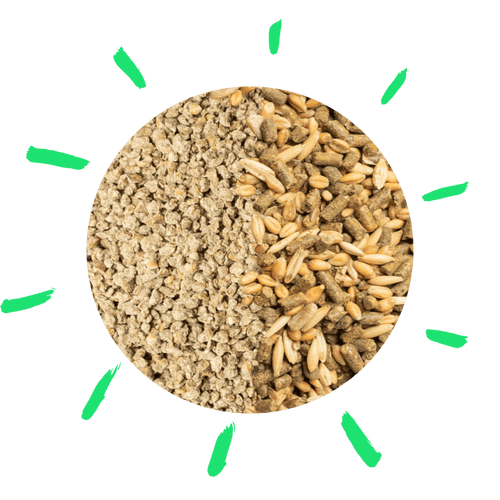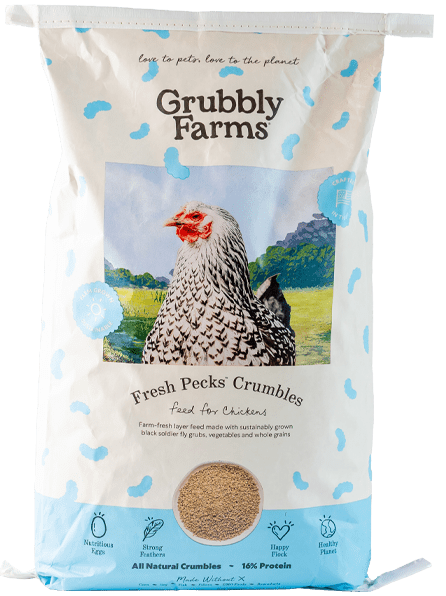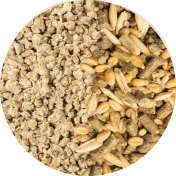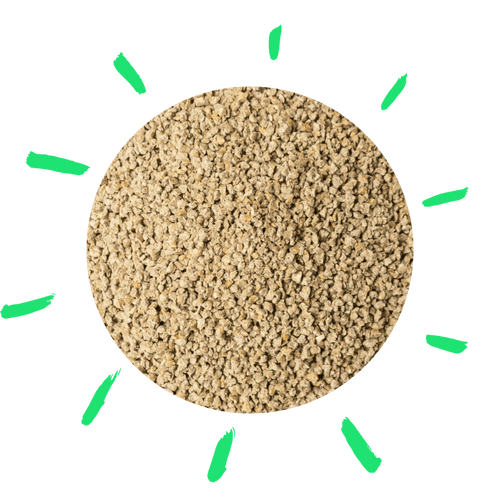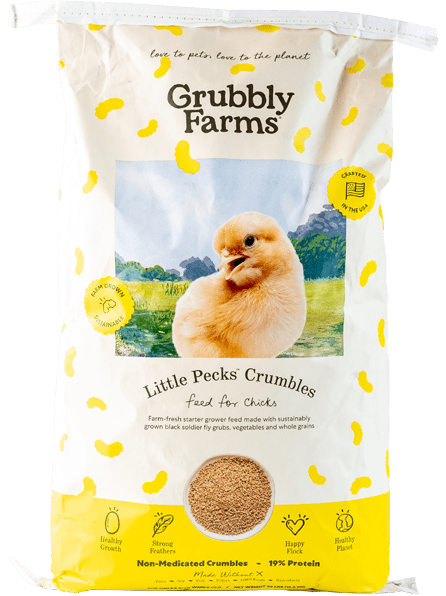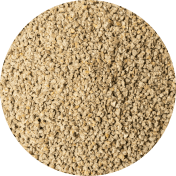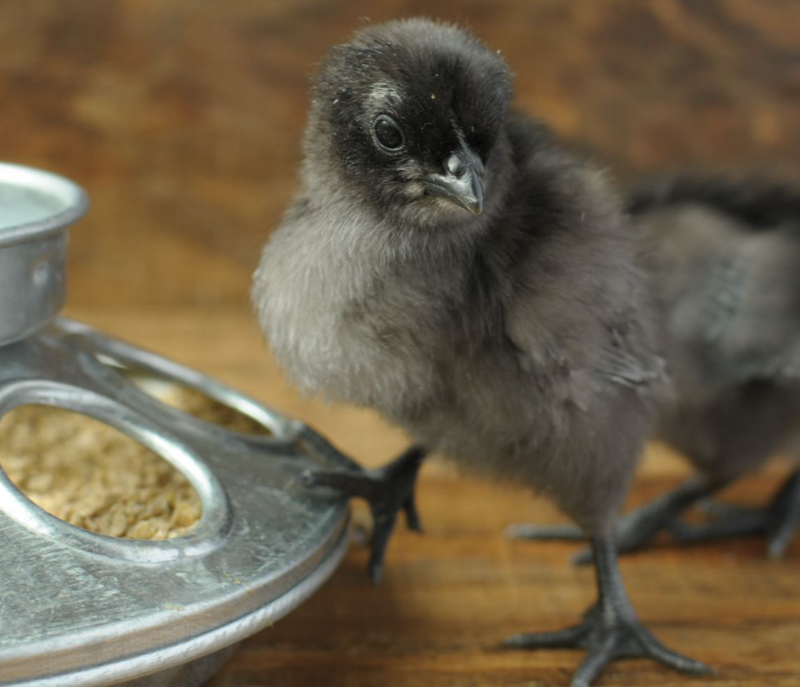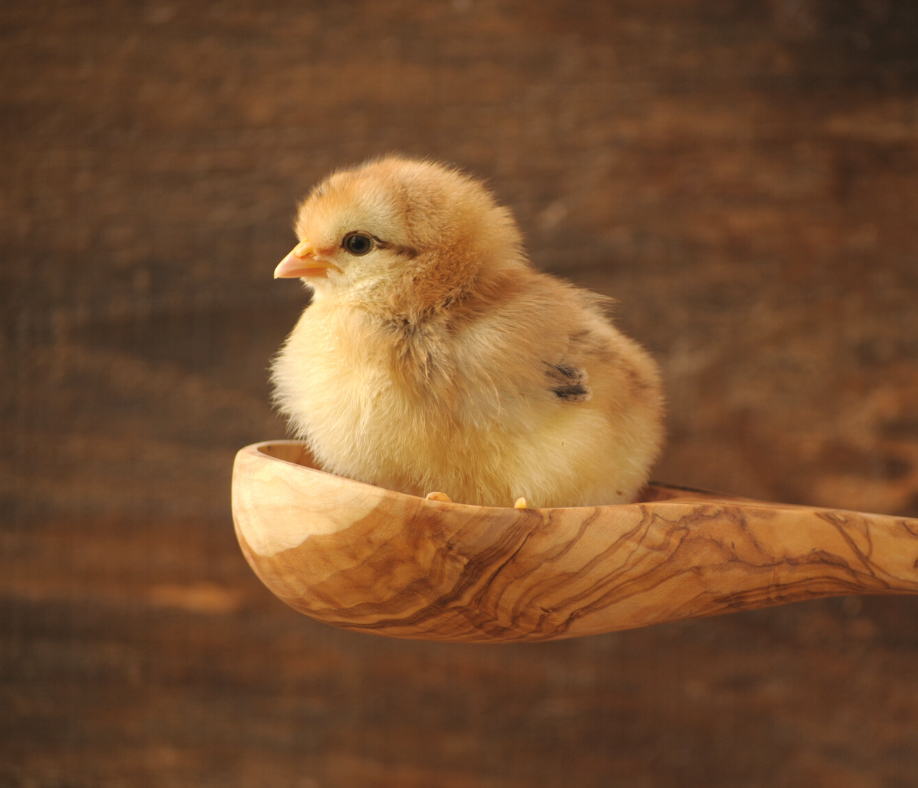Meet nature’s superfood for pets: grub protein! Grub protein is unlike any other protein choice for your backyard chickens, cats, dogs, or nearly any other pet.
What makes it so special? Grubs are rich in the natural flavor that animals love, they’re packed with antioxidants, and they provide pet parents a sustainable alternative to more common protein sources.
If you’re considering grub protein for your pet’s diet, prepare to learn all the fascinating benefits of this natural superfood. Not only will we dive into how grub protein benefits your pet, but we’ll also give you an inside look at how Grubbly Farms is making a difference for our planet, one pet at a time.
Why Do Pets Love Grubs?
It may come as a surprise to you that cats, dogs, chickens, ducks, and many other pets naturally love the flavor, texture, and scent of grubs. This is because pets like dogs and cats would have relied on grubs for protein had they not been domesticated. In fact, dogs are experts at locating and digging up grubs using their exceptional noses both in the wild and backyard.
Additionally, grubs offer a nutty flavor that is unique from most proteins your pet has eaten. This novelty makes grubs extra appetizing to our pets.
What Kind of Grubs Do We Use in Grubbly Farms Products?
Black soldier fly grubs are the protein source at the heart of every Grubbly recipe. These grubs come from the black soldier fly, harmless insects that don’t bite, sting, or transmit disease. These nutrient-rich grubs are naturally and sustainably grown on farms in the USA and Canada.
Unlike mealworms, we only use dried black soldier fly grubs, which offer a superior novel protein, fat, fiber, and calcium ratio. Additionally, our black soldier flies are never grown, sourced, or packaged in countries with a history of pet food recalls. In fact, all of our grubs are sustainably grown and oven-dried in the US and Canada.
What Is Grub Protein?

In many ways, grub protein isn’t too different from more traditional sources of protein, such as fish or beef. It is a real animal protein that is transformed into a delicious ingredient for pet snacks and foods. In fact, grub protein is a form of insect protein, which continues to grow in popularity as a sustainable and nutritious alternative for pet foods.
When it comes to providing pets with the best protein, there’s no need to cut corners or use questionable ingredients. Our process is simple: Grubs are grown, then harvested, and dried before they mature into a black soldier fly. From there, they’re either packaged or turned into protein powder.
What Are the Benefits of Grub Protein for Pets?

Grub protein is not only a sustainable substitute for traditional proteins, but it also provides protein and energy pets need to thrive. However, grubs also provide plenty of other perks for pets and their parents–like how eco-friendly they are.
What are the top reasons pet owners choose Grubbly goodness?
#1. Grub Protein is a Highly Digestible Novel Protein
Grub protein is a novel source of protein, meaning it is different from the protein sources traditionally used in many pet treats and food. Novel proteins are less likely to cause an allergic reaction or digestive upset for our pets, making them a hypoallergenic option for pets.
Why Novel Proteins Matter
Many pets develop immune responses from exposure to the same protein type over time. Simply put, when a pet develops an allergy to a protein, their bodies will react by trying to expel the protein.
Symptoms often recognized as an allergic reaction to proteins:
- Diarrhea
- Rashes or hives
- Hair loss
- Weight loss
- Itchiness (like paws and ears)
- Respiratory issues
To avoid these symptoms, many vets suggest pets switch to a novel protein diet. This makes grub protein great for pets with food allergies or sensitive stomachs. It is an easy-to-digest protein and has about an 85% digestibility rate for many pets.
#2. More Than Just Protein: Excellent Nutritional Content
Grubs provide pets with phenomenal nutritional benefits! Not only are grubs rich in protein. They also provide countless other benefits that help our pets live their best lives, every day.
Grubs contain about:
- 40% protein
- 28% fat
- 10% fiber
This nutritional content is optimal for nutrient digestion and usability for chickens, ducks, and turkeys. The fat and fiber provided by grubs are also beneficial for other pets. Fat provides energy and helps the body absorb nutrients from other foods in our pets’ diets while fiber promotes a healthy digestive system.
Omega Fatty Acids & Amino Acids
Grubs nourish the body with beneficial Omega 6 & 9 fatty acids. These fatty acids support a pet’s heart, kidneys, joints, coat, and brain.
Along with Omegas, grubs also contain 9 of 10 essential amino acids dogs need in their diets as well as 8 of the 11 amino acids cats need. These amino acids include lauric acid and lysine.
Lauric acid is often found in other pet superfoods such as coconut oil and is known to be beneficial for coat health, digestive health, and cognitive health for our pets. Lauric acids also possess anti-microbial properties which support our pets’ internal health. Additionally, lysine is an essential component for the body to be able to utilize protein and calcium absorption. It also helps boost the immune system!
Lysine supports the immune system while aiding in hormone production and enzymes.
Nutritious Grubs
- 40% protein more protein than a beef steak!
- Healthy Fat: aids nutrient absorption
- Fiber: aids digestive health
- Omega 6 & 9 fatty acids: are anti-inflammatory
- Lauric acid: promotes healthy skin, good digestive health, and proper cognitive function
- Lysine: aids protein and calcium absorption
Grubs have 9 of the 10 essential amino acids dogs need:
✔ Arginine
✔ Histidine
✔ Isoleucine
✔ Leucine
✔ Lysine
✔ Methionine
✔ Phenylalanine
✔ Threonine
✔ Tryptophan
✔ Valine
Grubs have 8 of the 11 essential amino acids cats need:
✔ Arginine
✔ Histidine,
✔ Isoleucine
✔ Leucine
✔ Lysine
✔ Methionine
✔ Phenylalanine
✔ Taurine
✔ Threonine
✔ Tryptophan
✔ Valine
#3. An Excellent Source of Calcium & Phosphorus
Grub protein also contains calcium and phosphorus, both of which are vital for our pets, especially our canine companions. Calcium is essential for pets’ healthy growth, and it is needed on a daily basis for maintaining skeletal health.
Pets need calcium for proper bone growth, eggshell formation (for chickens), heart health, reproduction health, and nervous system health. In fact, laying hens even need extra calcium added to their diet. Phosphorus supports bones and teeth integrity, kidney function, muscle function, as well as a vibrant metabolism.
#4. An Environmentally Responsible Source of Protein
Grub protein is an eco-friendly source of protein. In fact, it’s an eco powerhouse! There are three primary ways grub protein is head-and-tails better for our planet compared to other proteins: lower CO2 production, less water, and less acreage.
Growing grubs on sustainable farms produces a smaller ecological footprint than raising livestock, fish farming, or commercial fishing.
What’s the beef?
Beef is the most common protein in dog food and treats. It’s also the most common culprit when it comes to dog protein allergies, accounting for 51% of food allergen cases. Here’s how our grubs stack up to one of the most common proteins for pets, beef:
Diverting Food from the Waste Stream
Not only do grubs offer a more green alternative to the most common pet food and treat proteins, but they are also fed a sustainable diet of pre-consumer food waste. This is not possible when raising beef, poultry, or pork.
Where does pre-consumer food waste come from? Many grocery stores and restaurants wind up with fruits and vegetables that do not get sold or used. By partnering with these businesses, grub farmers divert tons of food that would otherwise wind up in landfills.
Fishing for a Better Option
Grubs also relieve some of the pressure put on our oceans due to commercial fishing. Grubbly Farms currently protects over 150,000 pounds of fish every year by utilizing grubs instead of seafood.
Nutritionally speaking, grubs provide a suitable protein substitute for fish meal, a common ingredient in many pet and livestock feeds.
#5 Keeping It Simple & Safe
While protein allergies are extremely common, many pets struggle to digest common fillers and artificial ingredients. Furthermore, many of these synthetic ingredients have proven to have harmful long-term effects on our pets. Unfortunately for our beloved fluffy friends, most foods, treats, and snacks are packed with ingredients most pet parents can’t pronounce. Because grub protein is highly palatable, there is no need for adding artificial flavors to our snacks.
Additionally, because growing grubs is straightforward, there’s no need for growth hormones, antibiotics, chemicals, or pesticides. This makes our grub protein more digestible and less likely to cause digestive upset compared to highly processed pet treats.
Show Your Pet (& the Planet) Extra Love with Grubs!
With so many benefits for pets, grubs truly are a pet food MVP. Grub protein is a protein source we can feel good about feeding our pets while also helping our planet thrive. With a wide array of amino acids, calcium, phosphorus, and omega fatty acids, feeding your pet grubs is a great way to support their health and happiness.





